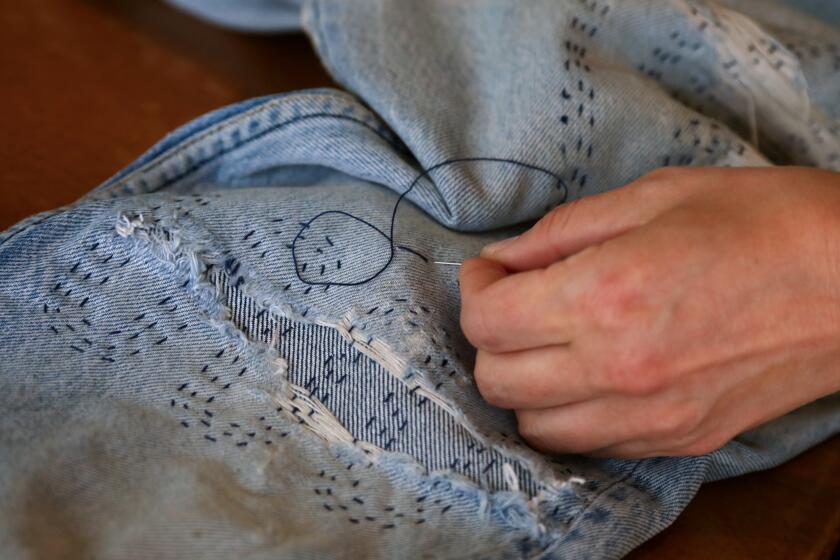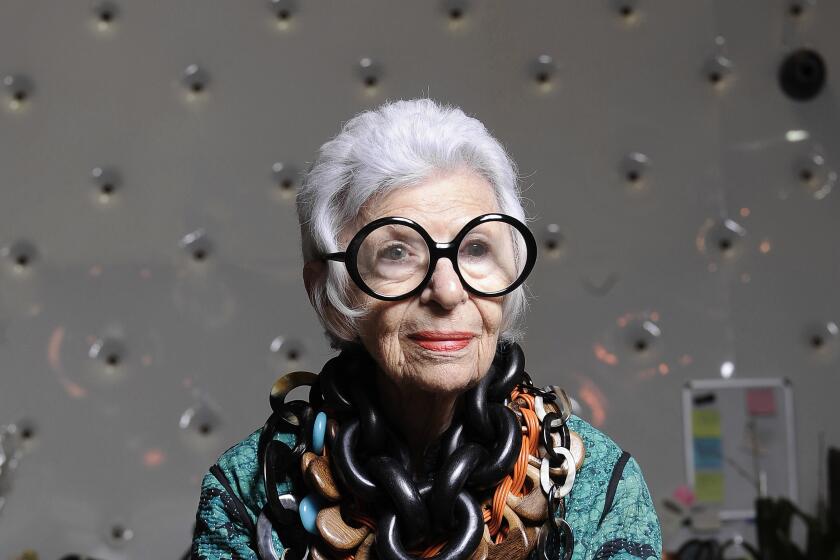Community Outreach: Loyola Law School continues its history of creating partnerships to benefit students as well as the community at large
Immigrants seeking to legitimize their residency status. Designers launching a fashion brand. Wrongfully convicted inmates seeking justice. Tenants alleging unfair treatment by landlords. The common thread of this disparate group: They are all Angelenos who were helped by the students and professors of the myriad legal clinics and centers at Loyola Law School, Los Angeles.
Throughout its 95-year history, Loyola Law School has focused on giving students valuable real-life learning experiences by forging relationships with local partners that benefit the community in and around its downtown L.A. campus. At the same time, the school is constantly updating curricula to reflect the changing dynamics of the metro area.
As the first American Bar Association-accredited law school in California with a pro bono requirement calling for students to volunteer 40 service hours for graduation, Loyola has a long-established history of pursuing its mission of social justice. Students collectively contribute 60,000 hours a year in public interest law firms, government agencies and judicial chambers.
With an ever-intensifying focus on experiential learning, the law school has increasingly interwoven the community into the classroom experience. And the students pass it on: Students in the law school’s Young Lawyers Program work with inner-city high school students in a semester-long mock trial program that culminates in the trying of a hypothetical case before real judges.
Collaborations include:
Helping immigrants secure status
Community collaboration is at the heart of Loyola’s Immigrant Justice Clinic (LIJC), which was formed to aid legally underserved segments of the Southland’s immigrant community. Working in partnership with community organizations like Dolores Mission and Homeboy Industries, it is the only community-based immigration law clinic in L.A. It was founded by 2012 alumnae Marissa Montes and Emily Robinson, clinic co-directors who started their work as students and established the clinic after receiving Loyola Law School Post-Graduate Fellowships in Public Interest Law.
“The LIJC’s mission is to serve the immigration legal needs of the indigent noncitizen community on the east side of Los Angeles while teaching law students how to be effective immigrants’ rights lawyers,” said Loyola law professor Kathleen Kim, faculty supervisor of the clinic. “Our clients benefit and our students learn how to be real lawyers.”
The LIJC yields real-world results. In January, Loyola law students Cortney Cortez (2015) and Sandra Ruiz (2015) won a U-visa for an undocumented, abused client with nowhere else to turn.
“We both felt that our knowledge and skills were finally making a significant difference in an immigrant’s life,” Cortez said. “Going through the entire process from start to finish exposed us to the real-life challenges that many practitioners face with their clients.”
Pairing fashion law students with designers
Behind L.A.’s stylish and trendy fashions there’s a complex, thriving industry that poses a wealth of challenges that require legal expertise. Enter Loyola, which established The Fashion Law Project in 2013 to address the needs of L.A.’s fashion industry and community.
“The fashion industry is burgeoning in Los Angeles — now the largest fashion center in the country — and so are its legal issues,” said Staci Jennifer Riordan, executive director of the program and a partner at Nixon Peabody, as well as Chair of its Fashion Law Practice Team.
Riordan said there are not enough lawyers to keep up with the demand. “I developed The Fashion Law Project to train attorneys to be well-versed in the nuances of this growing field while helping fashion executives and students with their unanswered legal questions,” she said.
The Fashion Law Project provides invaluable insight for students of law, fashion and design, as well as for legal and fashion industry professionals. For instance, Loyola students work with budding designers and fashion entrepreneurs to create and protect their brands via the school’s Fashion Law Clinic.
“It’s one thing to learn about the law in a very one-dimensional way, but a totally different thing when you are doing work for a very real client with real emotions and real issues,” said Ted Nguyen (2016), who helped a designer set up an operating agreement, draft contracts and file a trademark to get a clothing company off the ground.
The school’s annual Fashion Law Summer Intensive offers designers, retailers, law students and fashion students a crash course in fashion law and related business topics. In July, the program will focus on the legal elements necessary to construct a narrative for a brand, including issues related to intellectual property, importing and exporting, and fashion employment law
Helping the underserved resolve disputes
Loyola’s Center For Conflict Resolution (CCR), based at the law school’s downtown Public Interest Law Center, has helped more than 40,000 people in the 20 years since it launched. Along the way, it has conducted 400 training sessions to instruct 5,000 community members on mediation and communication skills — with a focus on Spanish-speaking communities.
“We were created to provide assistance to individuals who are unable to access the traditional justice system,” said Sara Campos, CCR assistant director and Loyola alumna, noting that the center helps resolve disputes between family members, neighbors, employer-employees and landlord-tenants. “People in the community trust us that we’ll be fair and help both sides get a conflict behind them.”
Seeking justice for criminal defendants
Partnering with the Office of the Federal Public Defender for the Central District of California, students in the Capital Habeas Litigation Clinic at Loyola’s Alarcón Advocacy Center work on the cases of inmates on death row, conducting research, interviews and contributing to habeas petitions addressing clients’ potential constitutional claims. Elsewhere, the school’s Project for the Innocent has secured the release of clients wrongfully convicted of crimes they did not commit. And Loyola’s Hobbs District Attorney Clinic offers students a yearlong opportunity to receive courtroom experience while working in the Los Angeles County District Attorney’s Office as a certified law clerk.
Representing L.A. County juvenile defendants and those serving life sentences for crimes they allegedly committed as youths, the Center for Juvenile Law & Policy regularly partners with stakeholders in L.A. and beyond to achieve reform in the juvenile justice system. Its recent conference on the impact of alleged gang membership on sentencing included judges, police officers and lawyers from both the prosecution and defense bar.
—Julia Clerk for Loyola Law School, Los Angeles



